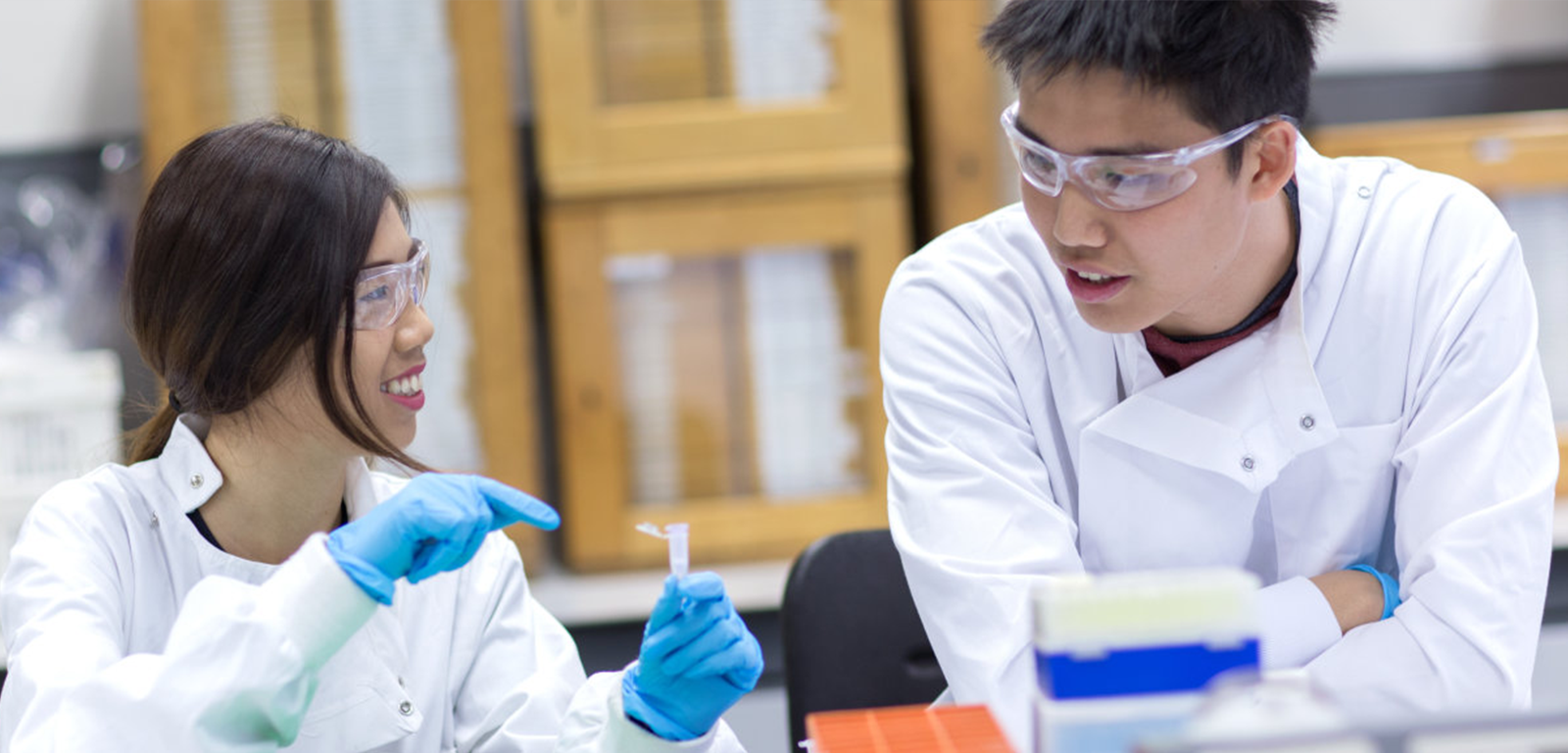

Biotechnology creates a vital link between biology and technology. Our courses cover all aspects of the applied biochemistry and biotechnology industries, including commercialising technology, entrepreneurship, and intellectual property and patents, with lectures and case studies from business leaders and academics.
This course enables you to study the full Biotechnology curriculum and then spend an additional year in Imperial College Business School.
More information:click here
Year 1
Core modules
Biological Chemistry
Cell Biology
Molecular Biology
Proteins and Enzymes
Year 2
Core modules
Fundamentals of Molecular Biochemistry
Genes and Genomics
Integrative Cell Biology
Protein Science
Topics in Biotechnology
Tutored Dissertation
Year 3
Core modules
Science Communication
Laboratory-based research project or a literature-based dissertation
Optional modules
You will choose one module from each group below.
Group 1
Damage and Repair in Biological Systems
Macromolecules in Three Dimensions
Medical Microbiology
Neuroscience Research
Plant Biotechnology and Development
Stem Cells, Regeneration and Ageing
Group 2
Advanced Topics in Immunity and Infection
Advanced Topics in Parasitology and Vector Biology
Cancer
Integrative Systems Biology
Mechanisms of Gene Expression
Metabolic and Network Engineering
Symbiosis, Plant Immunity and Disease
Group 3
Biodiversity Genomics
Bioinformatics
Biotechnology Applications of Proteins
Medical Glycobiology
Molecular Basis of Bacterial Infection
Synthetic Biology
Systems Neuroscience
Managament Year
Core modules
Accounting
Business Economics
Business Strategy
Entrepreneurship
Finance and Financial Management
Global Business Management
Group Project
Innovation Management
Marketing
Organisational Behaviour and Human Resource Management
Sustainable Business Development
Additional modules
These modules are compulsory, but do not count towards your final degree classification.
Accounting Primer
Plagiarism Awareness
Pre-Programme Maths
Study Skills

Life sciences graduates enjoy excellent career opportunities. Most of our graduates study for a higher degree in life sciences and many follow careers in the field, particularly in the research and management areas of pharmaceuticals, biotechnology, biomedical science, food technology, agrisciences, and pest, disease and environmental management.
Similar opportunities exist for life scientists in government and independent laboratories involved in medical research, public health, forensic investigation, disease research, conservation, and pollution. Some of our graduates also go on to work in medical careers, become teachers, or even work in the media.
Recent graduates of the Department have become:
Research Officer, A*STAR, Singapore
Television Researcher, BBC
Fungicide Biochemist, Syngenta
Analyst, Deutsche Bank
PhD student, Cambridge University

Insurance-Single:£300/year